Transgender Mohini’s journey to entrepreneurship
35-year-old Mohini is determined to make her poultry farm in Uttar Pradesh a success story, and hopes others in her community get inspired to give up begging and move towards entrepreneurship.
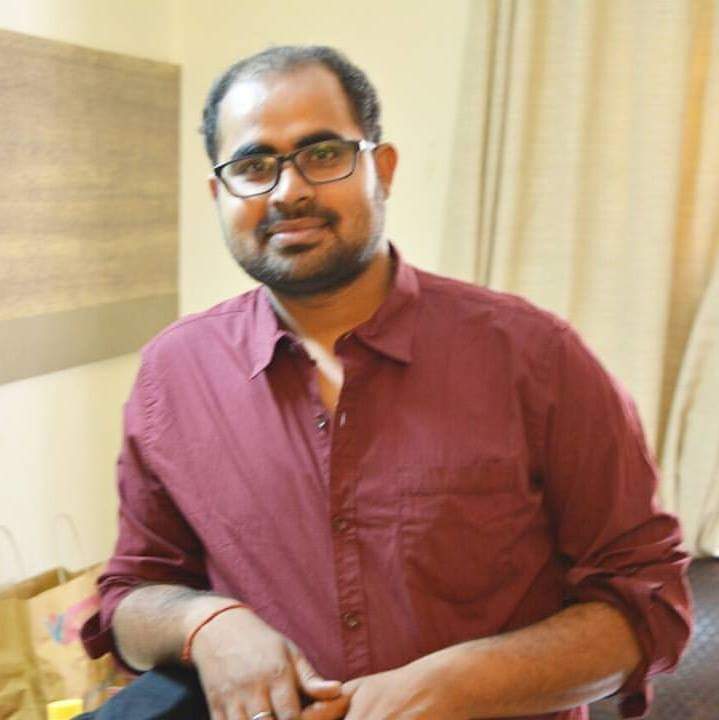
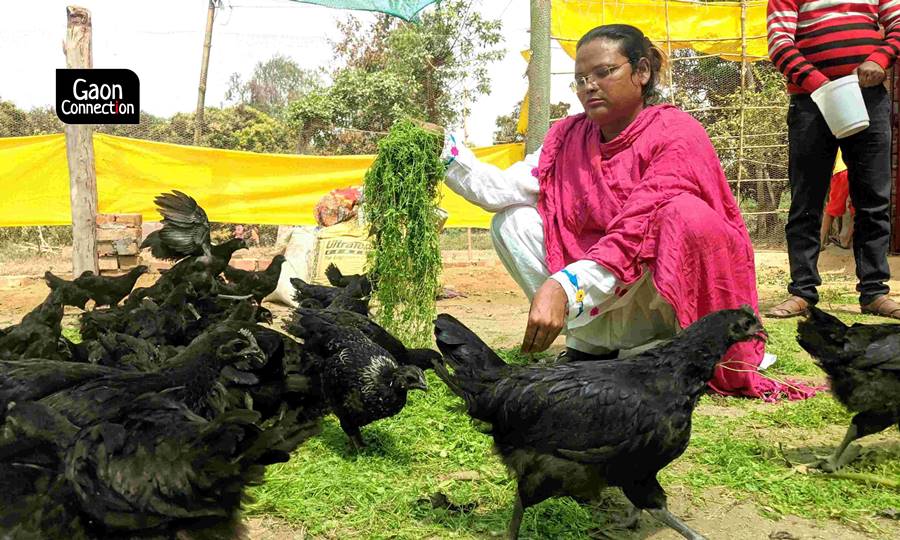
The Farmer First project in Lucknow is trying to link transgender communities to self-employment opportunities. Photo: Divendra Singh
Mal, Lucknow
Since January this year, Mohini, a transgender who danced and sang for a living, has turned entrepreneur and set up a poultry farm. Mohini is determined to script a success story of the farm, not just for herself but also for others in the community who may be inspired by it to become entrepreneurs.
“Members of my community are usually not able to pursue any occupation other than dancing and seeking badhai but I have started my own business and am confident that it will yield some positive outcome,” Mohini told Gaon Connection. “Who knows, my life might even motivate and inspire my community sisters to start their own business,” the 35-year-old said.
Mohini’s Kadaknath (an Indian breed of chicken) poultry farm is nothing more than a tin shed with tarpaulin sheets, in the midst of a mango orchard in Bhitaura village, Malihabad, in Uttar Pradesh, about 35 kms away from the state capital, Lucknow.
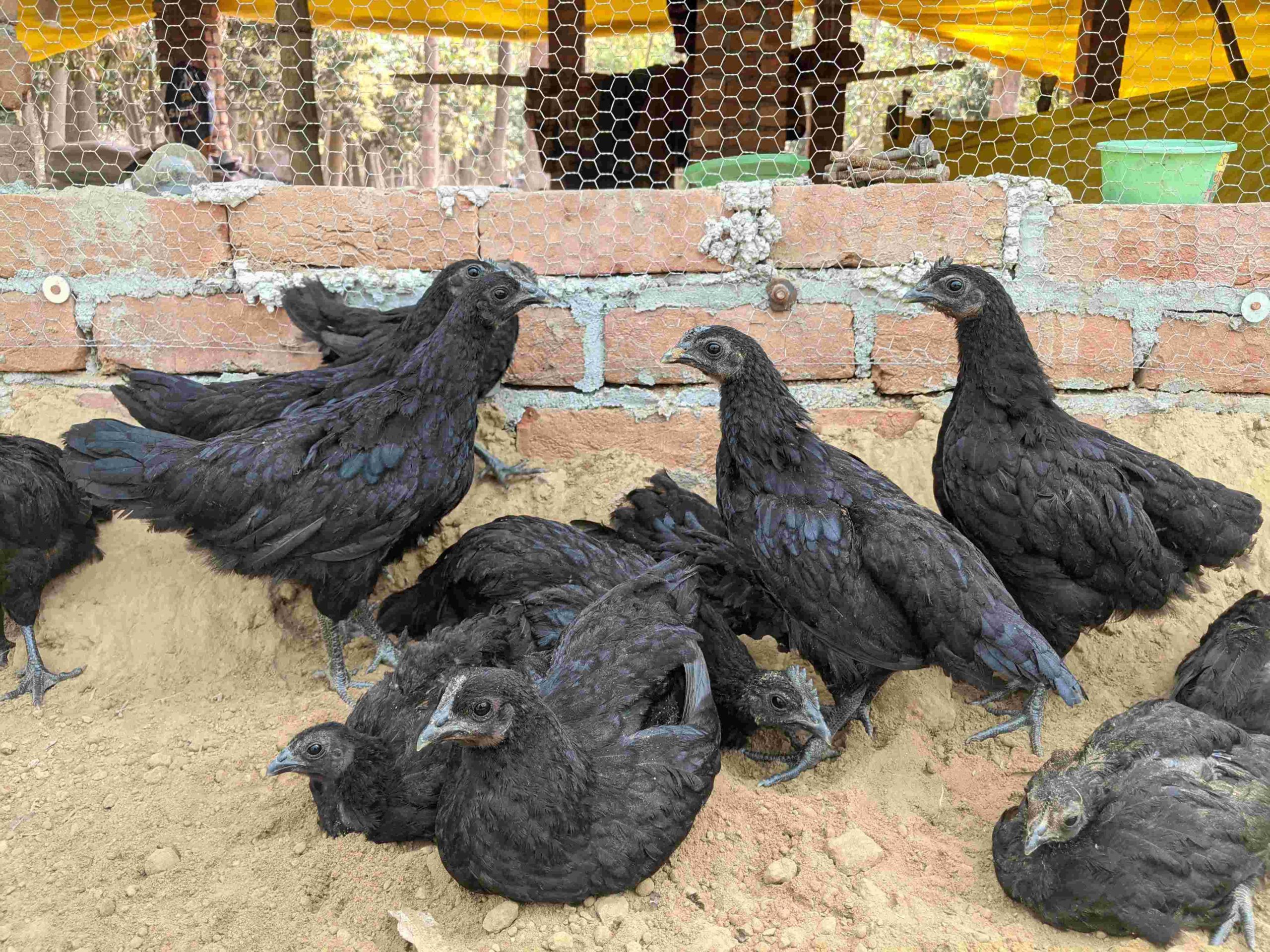
“Initially, I purchased ten chicks and kept them in a large iron cage in the house. When I bought a few more, my landlord objected saying I could not keep them all inside,” said Mohini. But the landlord did allow Mohini some space at his mango orchard out of where the poultry now operates with more than 500 birds. She spent more than Rs four lakh to buy the 500 chickens and set up the poultry farm. To raise this amount, she sold her jewellery and took a loan of Rs 1.5 lakh.
Mohini is slowly consolidating the business. Her chicks are getting bigger and soon they will yield eggs. But for now she is waiting, watching and keeping her fingers crossed, she said.
The business of being accepted
Mohini shifted from Agra to Lucknow three years ago where the Kinnar Guru (sectoral transgender head) allotted her the Mal area to work in. “No one was willing to rent us accommodation here. When I found a place, the local goons threatened the landlord. They said we people only steal, loot and flee. However, our landlord let us stay,” she said, though stated that many people continue to be hostile to her and her community.
There are seven other transgenders in Mal who helped Mohini set up the poultry farm.
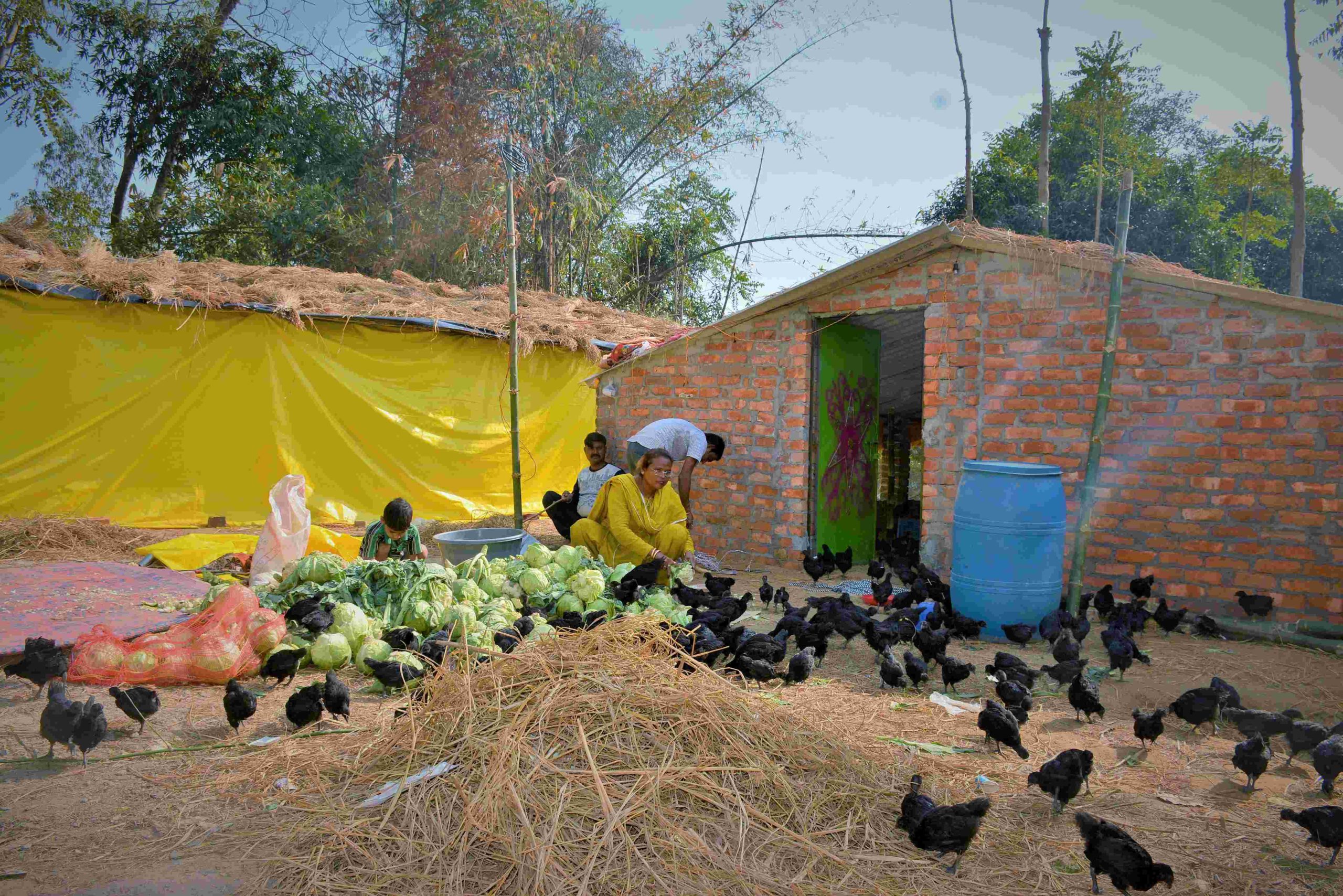
As per the 2011 census, the transgender community population in the country is about 4,87,803. The Union ministry of social justice and empowerment passed the The Transgender Persons (Protection Of Rights) Act, 2019, to protect their rights and safeguard their welfare. The Act provides for inclusive education, non-discrimination in employment, health services, etc., besides recognition of their identity and the right to choose their own sexual orientation. The Act also speaks of transgender sensitive, non-stigmatising and non-discriminatory welfare schemes and programmes.
Mohini is a beneficiary of one such programme, the Farmer First project of Central Institute of Subtropical Horticulture, Lucknow. The institute trains people in poultry farming and, thanks to it, dozens of farmers are rearing indigenous varieties of poultry in the mango orchards of Malihabad.
“Farmer First project is being carried out in three villages of Malihabad block to increase the income of mango cultivators,” Shailendra Rajan, director, Central Institute of Subtropical Horticulture told Gaon Connection. They are encouraged to cultivate poultry breeds such as Kadaknath, CARI Nirbheek, CARI Devendra and CARI Asheel, in their orchards.
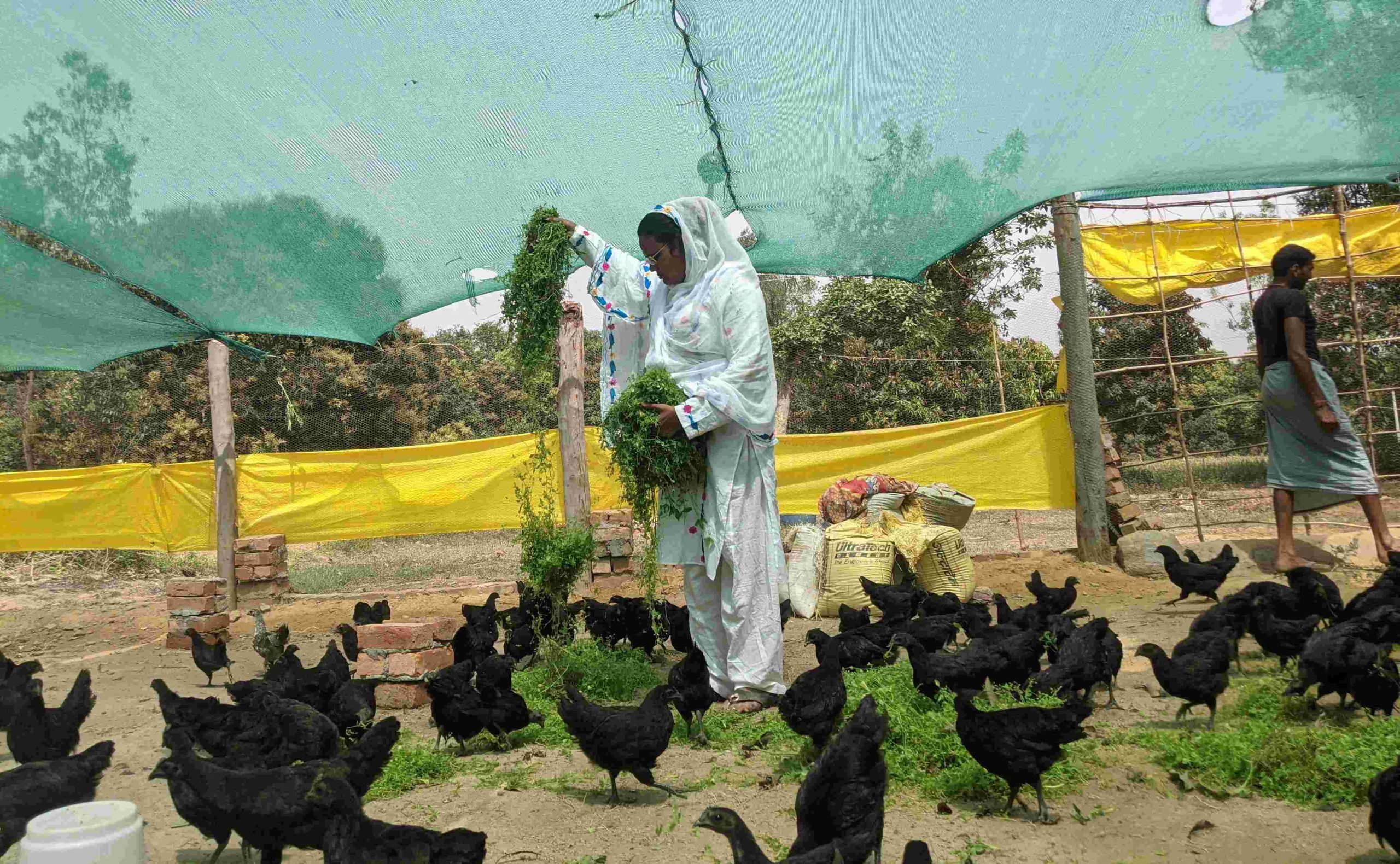
These chickens feed upon insects, weeds, seeds and rotten grains, vegetables and green fodder, which reduces the cost of rearing them, pointed out Rajan. “At the same time, the price of these chickens may be more than thousand rupees a kg as compared to the broiler variety which sells for nothing more than hundred and fifty to two hundred rupees a kilo,” he said.
The Farmer First project is trying to link small and marginal farmers, women, gypsy and transgender communities to self-employment opportunities.
“Besides making us self-reliant and providing a means of livelihood, this should also earn us some regard and acceptance in mainstream society,” hoped Mohini.
Read the story in Hindi here.

